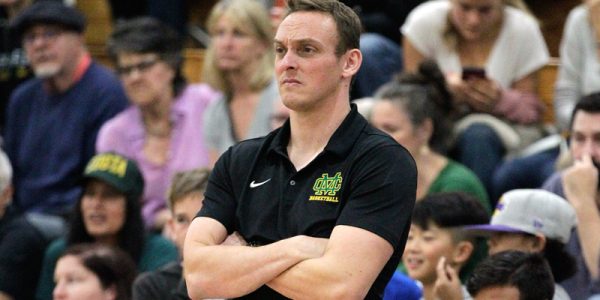But don’t chase after ‘ugly sister’ decoys, she tells Distinguished Speaker audience
by Elka Worner
If you’ve ever walked into a room and wondered why you’re there, or struggled to remember an actor’s name, or forgotten the password to one of your online accounts, Dr. Lisa Genova said there’s no need to panic. These memory glitches are “totally normal.”
“There’s this false belief that memory is supposed to be perfect and that we’re supposed to remember everything,” the neuroscientist said at her Feb. 22 Distinguished Speaker Series address. “Our brains are not designed to remember people’s names, or do something later, or catalog everything we encounter.”
There was a collective sigh of relief from the audience at the Redondo Beach Performing Arts Center.
Genova is one of the world’s leading experts on Alzheimer’s and other neurological diseases. Her first Ted Talk “What You Can Do to Prevent Alzheimer’s” has been viewed more than eight million times. Her best-selling book, “Still Alice,” was adapted into a film starring Julianne Moore. It tells the story of a linguistic professor at Columbia University who is diagnosed with early on-set Alzheimer’s.
Her first non-fiction book, “REMEMBER: The Science of Memory and the Art of Forgetting,” released in March 2021 became an instant New York Times best seller.
In her presentation, Geneva said the “first necessary ingredient for creating memory” is to pay attention.
“You can only remember what you pay attention to,” she said. She cited the time she forgot where she parked her car at the mall because she hadn’t bothered to notice her surroundings.
A sign of more serious cognitive decline, or Alzheimer’s, would be if she forgot that she drove there or if she stood in front of her car and did not recognize it.
Another common memory failure is having a word – usually a proper noun — on the tip of your tongue and trying desperately to retrieve it. Genova shared the time she could not remember the name of the actor who played Tony Soprano on the popular HBO series. Instead of zeroing in on his name, her brain came up with a loosely connected word, Lance Armstrong, which is known as the “ugly sister” of the target word.
“Zeroing in on an ugly sister will only make the situation worse,” she said. “These decoys lead your brain activity down neural pathways that go to the ugly sisters. They’re like little neurological cul de sacs.”
Blocking on a person’s name is totally normal, Genova said. Young people can have several ‘tip of the tongues’ a week, but they don’t sweat it and aren’t worried about old age, memory loss or Alzheimer’s, Genova said. Young people do something most adults don’t, which is outsourcing the job to their Smartphones.
“Most adults think Google is a high-tech crutch, and insist on coming up with a name on their own. It doesn’t make your memory any stronger,” she said.
The audience clapped when Genova told them they did not have to be “memory martyrs.”
“You wear glasses if your eyes need help seeing. You have my permission to use Google if a word is stuck on the tip of your tongue.”
Making a grocery list isn’t cheating either, she said. There’s no need to store the list in your brain and blame yourself when you get home without the milk or toilet paper. Your brain is not wired for prospective memory, or things you must do in the future.
“Your memory is quite economical, and our brains have evolved to remember what is meaningful, emotional, surprising, new and what we repeat and practice,” she said. “It forgets everything else.”
Which may explain why you remember every detail of your vacation to Fiji, but not what you had to eat for lunch last Thursday.
Memory is influenced by context, sensory information linked to the thing we’re trying to remember, Genova said. So if you went to the kitchen to look for your glasses, but then get there and think “Why am I here,” go back to the bedroom where you have your book on the nightstand, a lamp, a shelf of books to spark your memory.
The Harvard-trained doctor said there’s plenty you can do to ward off Alzheimer’s. Drugs like Prevagen and supplements, which claim to stop memory loss, don’t work, she said.
A Mediterranean diet with lots of leafy vegetables, brightly colored foods and fatty fishes; 30 minutes of exercise a day, and plenty of sleep – about seven to nine hours a night – are important for brain health. Reducing stress is key.
It’s also important to be a lifelong learner.
“You’ve got trillions of connections in your brain, and they will not run out,” Genova said. “You can learn to juggle when you’re 80, learn to play the piano, a new language…it’s unlimited.”
She cited one example of the brain’s capacity, which even blew her mind.
“When most people are thinking about senior discounts and retirement, a 69-year-old engineer from Japan memorized 100,000 digits of pie,” Genova said. “We can all do this if we want to.” ER








